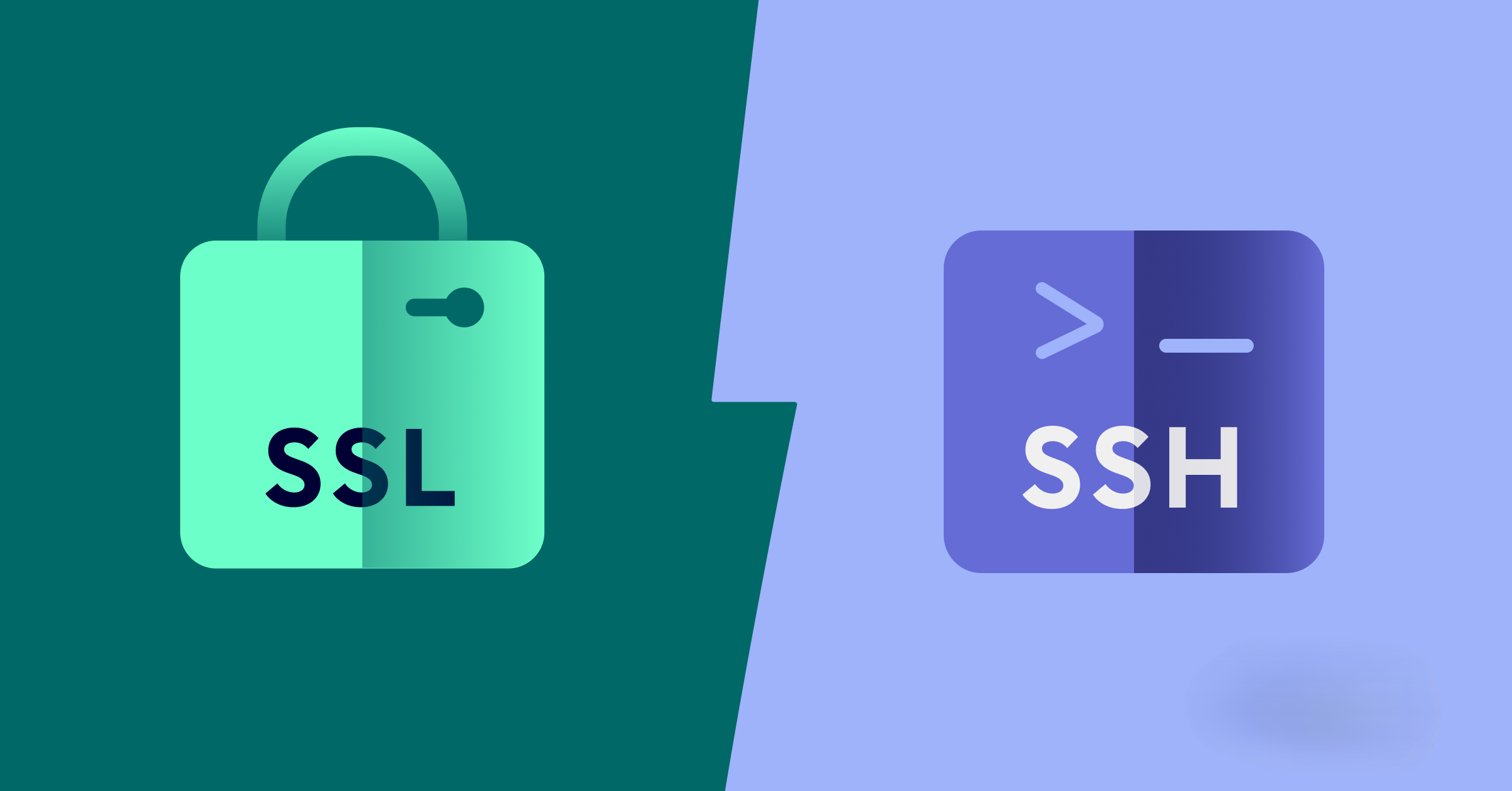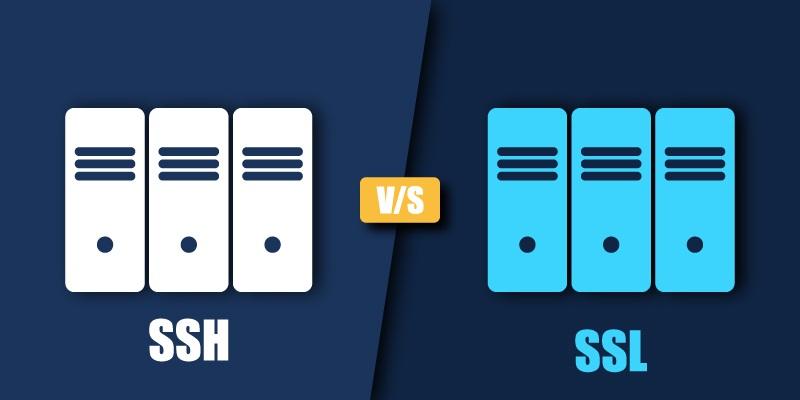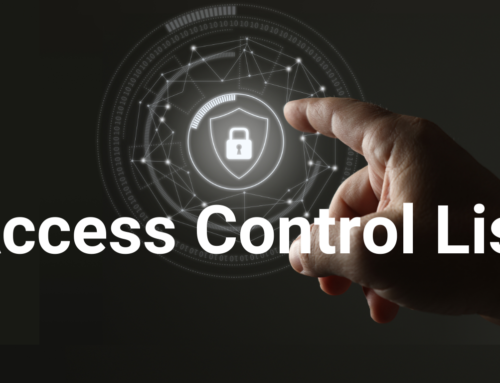
SSL/SSH Deep Packet Inspection: Why It Matters More Than Ever.
SSL/SSH Inspection Explained: Deep Packet Inspection Analysis on FortiGate SSH Inspection and SSL Inspection.
In the ever-evolving landscape of cybersecurity threats, safeguarding your enterprise’s data and intellectual property has never been more critical. This is where advanced security technologies, such as SSL/SSH inspection, come into play. FortiGate, a leading name in network security appliances, offers comprehensive solutions for deep packet inspection to ensure that your sensitive data remains protected. In this article, we delve into the intricacies of SSL and SSH inspection, exploring how these processes enhance network security by detecting and preventing potential threats.
Understanding SSL and SSH Inspection
What is SSL Inspection?
Secure Sockets Layer (SSL) inspection is a crucial component of network security, designed to inspect encrypted traffic by decrypting SSL and TLS communications, allowing organizations to identify potential threats moving through encrypted channels. As more web traffic becomes encrypted, including HTTPS traffic, organizations must adapt their security measures to include robust outbound inspection. SSL inspection is necessary to detect malicious content hidden within the encrypted data. By performing a deep inspection of SSL traffic, FortiGate firewalls can analyze packet headers and payloads, ensuring that no harmful content bypasses security measures. This process involves dynamically decrypting and re-encrypting data, allowing organizations to filter and scan network traffic effectively, without compromising the integrity or confidentiality of the original data stream.
What is SSH Inspection?
SSH inspection is another vital process in maintaining robust network security, focusing on monitoring SSH traffic for any signs of intrusion or malicious activity. SSH, or Secure Shell, is often used for secure data transfer and remote system access, making it a target for potential vulnerabilities. By inspecting SSH packets, FortiGate systems can detect and prevent unauthorized access attempts and data leakage. This deep packet inspection enables organizations to scrutinize SSH traffic for anomalies, ensuring that only legitimate, secure connections are established. Such meticulous inspection helps in safeguarding enterprise networks against potential threats that exploit encrypted communications.
Importance of Inspection in Network Security
Inspection plays a fundamental role in network security, providing the necessary tools to detect and mitigate cyber threats. By employing SSL and SSH inspection, organizations can secure their network traffic against vulnerabilities and malicious attacks that could compromise sensitive data, preventing potential hacker intrusions. FortiGate’s deep packet inspection offers a comprehensive approach to threat detection and prevention, ensuring that encrypted traffic is thoroughly analyzed for any signs of malware or intrusion, while also allowing for separate SSL handling. This not only fortifies your business against potential threats but also enhances your overall cybersecurity posture, offering peace of mind and reliability in an increasingly digital world, especially against outbound threats. We recognize the paramount importance of our customers’ businesses, and our commitment is to empower them with the most effective security tools available.
Deep Packet Inspection (DPI) Overview
Definition of Deep Packet Inspection
Deep Packet Inspection (DPI) is a sophisticated method of examining data packets as they traverse a network, allowing for an in-depth analysis beyond the basic packet filtering capabilities of traditional firewalls. Unlike conventional systems that merely inspect packet headers, DPI assesses the entire payload, thereby enabling organizations to detect and mitigate threats embedded within encrypted network traffic and improve data leakage prevention strategies. This inspection process is integral to FortiGate’s security solutions, providing a robust framework for identifying and neutralizing potential cybersecurity threats before they can exploit vulnerabilities. DPI empowers enterprises to maintain high standards of network security while minimizing risks associated with malicious content.
How DPI Works with Encrypted Traffic
Handling encrypted traffic presents a unique challenge for network security, a challenge effectively addressed by DPI. When dealing with SSL and TLS encrypted communications, DPI operates by decrypting the traffic momentarily to perform a thorough inspection of data packets. This includes analyzing SSL handshakes, packet headers, and payloads to detect any anomalies or malicious content that may be hidden within. FortiGate appliances utilize advanced decryption techniques to ensure that HTTPS and other encrypted traffic streams are scrutinized without compromising data integrity. This capability is crucial for identifying threats that exploit encryption to bypass traditional security measures, thereby bolstering an organization’s overall cybersecurity posture.
Benefits of DPI in Cybersecurity
Deep Packet Inspection offers several critical benefits in the realm of cybersecurity. Primarily, it enhances threat detection and prevention by enabling comprehensive content scanning and packet analysis through deep packet inspection monitors. This allows organizations to detect malware, prevent data leakage, and thwart intrusion attempts with precision. DPI also facilitates efficient packet filtering, ensuring that only legitimate network traffic passes through, thus reducing the risk of unauthorized access and enhancing intrusion detection systems. By integrating DPI with FortiGate’s robust security tools, enterprises can dynamically configure their defenses to address evolving cyber threats. Moreover, this inspection technology minimizes latency, ensuring that security does not impede network performance, thereby maintaining a seamless and secure user experience.
FortiGate’s Approach to SSL and SSH Inspection
FortiGate Overview
Teamwin Global Technologica, renowned for its state-of-the-art cybersecurity solutions, offers robust firewall systems such as FortiGate to safeguard enterprise networks, ensuring that traffic moving through encrypted channels is thoroughly monitored. FortiGate stands out as a leading solution, leveraging advanced technologies to provide deep packet inspection of encrypted traffic. This inspection involves decrypting SSL and SSH packets to detect and neutralize threats that could compromise sensitive data. By analyzing packet headers and payloads, FortiGate ensures that malicious content is filtered out effectively. As an essential tool in network security, FortiGate empowers businesses to maintain secure communications, protecting against potential intrusions and data breaches.
Configuration of SSL and SSH Inspection on FortiGate
Configuring SSL and SSH inspection on FortiGate is a meticulous process designed to maximize network security while minimizing disruptions. FortiGate appliances allow administrators to dynamically configure settings, ensuring that SSL traffic and SSH connections are thoroughly inspected without affecting network performance. By employing a full inspection of encrypted traffic, FortiGate utilizes decryption techniques to analyze SSL handshakes and SSH sessions for any anomalies, thus acting as an intrusion detection system. This involves setting up proxy policies, managing certificates from the browser’s certificate store, and defining inspection profiles to detect and prevent malicious activities. Such configurations are integral to safeguarding your enterprise against vulnerabilities while maintaining seamless and secure operations, particularly against data leakage prevention threats.
Performance Impact and Considerations
While the deep inspection of encrypted traffic provides enhanced security, it is crucial to consider the performance impact on network infrastructure. FortiGate’s inspection processes, including SSL and SSH inspection, are designed to minimize latency and ensure efficient packet filtering. However, decrypting and inspecting traffic can increase the load on resources, potentially affecting throughput. Organizations must balance security needs with performance requirements, leveraging FortiGate’s advanced capabilities to dynamically adjust inspection levels. By considering factors such as port configurations, IP address management, and cipher suites, enterprises can optimize their inspection processes, maintaining a high level of network security without compromising on speed or reliability.
Threat Detection and Vulnerability Management
Utilizing SSL and SSH Inspection for Threat Detection
In today’s digital ecosystem, where cyber threats are increasingly sophisticated, TeamWin Global Technologica positions itself as a leader in cybersecurity by leveraging SSL and SSH inspection for comprehensive threat detection. By implementing Secure Sockets Layer (SSL) and Secure Shell (SSH) inspection, TeamWin’s solutions dynamically decrypt and scrutinize encrypted traffic, allowing for the identification of malicious activities hidden within SSL and SSH sessions. This meticulous approach to inspecting network traffic ensures that potential threats are detected and neutralized before they can exploit vulnerabilities, thereby safeguarding sensitive data and maintaining the integrity of client infrastructures. TeamWin’s technologically advanced appliances, like FortiGate, empower businesses with the ability to secure encrypted communications through rigorous deep packet inspection, thus enhancing their overall cybersecurity posture.
Identifying Vulnerabilities in Encrypted Traffic
Encrypted traffic, while essential for securing communications, can also harbor vulnerabilities that cybercriminals exploit. TeamWin leverages deep packet inspection (DPI) techniques to detect these vulnerabilities within encrypted SSL and SSH traffic, enhancing overall network activity monitoring. By decrypting data packets and analyzing packet headers and payloads, TeamWin’s solutions identify anomalies and potential security breaches that traditional firewalls might overlook. This thorough inspection process ensures that threats like malware and intrusion attempts are detected early, allowing for swift mitigation and enhanced network security. In doing so, TeamWin provides organizations with the tools necessary to protect against data leakage and unauthorized access, ensuring that encrypted network traffic remains secure and trustworthy.
Case Studies of Successful Threat Mitigation
TeamWin’s commitment to cybersecurity excellence is exemplified through numerous case studies showcasing successful threat mitigation. By employing SSL and SSH inspection as part of their security protocols, TeamWin has helped clients avert potential data breaches and secure their digital environments against hackers. Here are some notable examples:
- Detection of a sophisticated phishing attack hidden within encrypted HTTPS traffic, where TeamWin’s solutions promptly identified and blocked the malicious payloads.
- Effectiveness of SSH inspection in preventing unauthorized access to critical systems by identifying and thwarting an intrusion attempt.
These real-world examples underscore TeamWin’s ability to deliver reliable and proactive threat detection, ensuring that client networks are fortified against evolving cyber threats and hacker tactics.
Best Practices for Network Traffic Inspection
Implementing Effective Packet Filtering Strategies
To navigate the complexities of network security, implementing effective packet filtering strategies is paramount. TeamWin empowers organizations to configure their FortiGate appliances to conduct comprehensive packet filtering, ensuring that only legitimate network traffic flows through. By analyzing packet headers and employing advanced filtering techniques, TeamWin’s solutions can identify and block potentially harmful traffic, such as malware or unauthorized access attempts. This proactive approach mitigates security risks and enhances the overall resilience of IT infrastructures. The ability to dynamically adjust filtering rules ensures that protections evolve alongside emerging threats, providing a robust defense against cyber intrusions and maintaining the integrity of organizational networks.
Maintaining User Privacy While Inspecting Traffic
In the realm of cybersecurity, maintaining user privacy while inspecting network traffic is a critical concern. TeamWin addresses this by employing inspection methods that respect user confidentiality, even as they scrutinize encrypted traffic for potential threats. Their solutions ensure that sensitive information is handled with the utmost care, using SSL and SSH inspection processes that minimize privacy intrusion. By selectively decrypting and re-encrypting traffic, TeamWin’s tools provide thorough threat detection without compromising user data privacy. This balance between security and privacy is essential in fostering trust and ensuring that organizations can confidently protect their networks while respecting the privacy of their users.
Regular Updates and Compliance in Inspection Protocols
Regular updates and adherence to compliance standards are integral to maintaining effective inspection protocols. TeamWin ensures that its security solutions, including FortiGate appliances, are continually updated to address the latest vulnerabilities and cyber threats, as documented in the Fortinet document library. By staying informed about industry standards and regulations, TeamWin helps organizations maintain compliance with security protocols, such as those related to SSL and SSH traffic inspection. This commitment to regular updates and compliance reinforces the reliability and efficacy of TeamWin’s security measures. By doing so, they provide clients with peace of mind, knowing that their networks are equipped with the latest defenses and are aligned with the highest industry standards.
5 Surprising Facts About SSL/SSH Deep Packet Inspection and Why It Matters More Than Ever
- Many organizations underestimate the volume of encrypted traffic; over 80% of internet traffic is now encrypted, making SSL/SSH deep packet inspection essential for visibility.
- Deep packet inspection can reveal threats hidden within encrypted traffic, including malware and data exfiltration attempts that traditional security measures might miss.
- SSL/TLS vulnerabilities, such as Heartbleed and POODLE, highlight the importance of deep packet inspection in identifying and mitigating risks associated with outdated protocols, as inspection allows for better detection of potential threats.
- Implementing SSL/SSH deep packet inspection can enhance compliance with regulations like GDPR and HIPAA by ensuring sensitive data is monitored and protected.
- Despite privacy concerns, organizations can balance security and privacy by using advanced techniques in deep packet inspection to monitor traffic without compromising user confidentiality.
What is SSL inspection and why is it important?
SSL inspection refers to the process of decrypting and analyzing SSL/TLS encrypted traffic to ensure that security systems can effectively monitor and manage network traffic. As more data is transmitted over encrypted channels, SSL inspection becomes crucial for threat detection and maintaining robust network security.
How does deep packet inspection (DPI) analyze network traffic?
Deep packet inspection analyzes the packet data within the network traffic, allowing security systems to identify, filter, and manage various types of traffic, ensuring that threats moving through encrypted channels are detected. DPI enables organizations to detect threats that may evade traditional firewalls and intrusion detection systems by inspecting the contents of packets rather than just their headers.
What types of traffic can SSL inspection filter?
SSL inspection can filter various types of traffic, including web browsing, email communications, and file transfers that are encrypted using SSL/TLS, ensuring that all data is re-encrypted and sent appropriately. By decrypting this traffic, organizations can carry out attacks prevention measures and ensure that malicious content is not being transmitted.
Why is analyzing incoming packets essential in cybersecurity?
Analyzing incoming packets is essential in cybersecurity because it allows security systems to detect potential threats before they reach their intended destination. By applying antivirus scanning and other security features to incoming packets, organizations can prevent man-in-the-middle attacks and other vulnerabilities that could compromise data integrity, ensuring that all data is re-encrypted and sent securely.
How does SSL inspection help in threat detection?
SSL inspection helps in threat detection by allowing security systems to examine the contents of encrypted traffic. By analyzing the packet data, organizations can identify malicious payloads and suspicious behavior, even when data is being transmitted through encrypted channels.
What is the role of DPI in network security?
DPI plays a significant role in network security by providing a comprehensive approach to monitoring and managing traffic. It enables security systems to analyze network traffic in real time, filter out harmful content, and enforce security policies effectively, thereby protecting organizations from potential cyber threats.
Can SSL inspection evade detection by attackers?
SSL inspection itself does not evade detection; rather, it enhances an organization’s ability to detect attacks. By decrypting and analyzing packets on behalf of the client, security systems can reveal malicious activities that may be hidden within encrypted traffic, making it more difficult for attackers to carry out attacks successfully.
What challenges arise when implementing SSL deep packet inspection?
Implementing SSL deep packet inspection can present challenges such as maintaining user privacy and managing the performance impact on network resources. Additionally, there may be legal and compliance issues related to decrypting and inspecting sensitive data, requiring organizations to balance security needs with privacy concerns, especially when inspection allows for deeper analysis.







